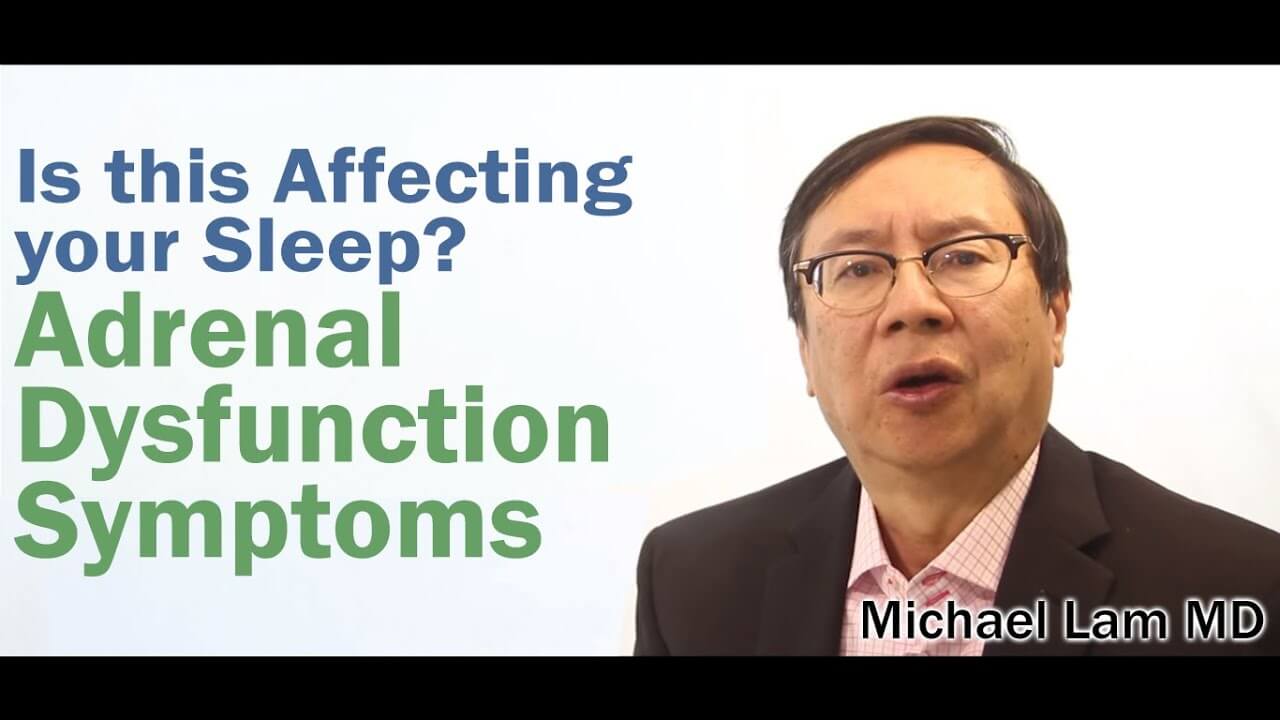
 Sleeping problems are becoming a real concern in the modern world. Millions find themselves staying up late and waking early, tossing and turning for hours, or waking in the middle of the night. It might seem like a fairly harmless problem, but the truth is that sleeping issues can do more than cause common sleep deprivation symptoms like fatigue or grogginess. If left uncorrected, this problem can even be life-threatening in some situations.
Sleeping problems are becoming a real concern in the modern world. Millions find themselves staying up late and waking early, tossing and turning for hours, or waking in the middle of the night. It might seem like a fairly harmless problem, but the truth is that sleeping issues can do more than cause common sleep deprivation symptoms like fatigue or grogginess. If left uncorrected, this problem can even be life-threatening in some situations.
Most people need between 7 and 9 hours of sleep every night and children and teenagers need a little more. If you don’t get enough sleep, it is called sleep deprivation, and you will start to experience sleep deprivation symptoms.
However, there’s more involved in sleep deprivation than just the number of hours you sleep. The quality of your sleep matters as well. If you wake up constantly throughout the night and spend your days feeling groggy and tired, then even if you’re in bed for 8 hours, you’re sleep-deprived.
Sleep deprivation is not the same thing as insomnia. If you have insomnia, then you have enough time to sleep, but just can’t get to sleep or stay asleep. On the other hand, while insomnia might cause sleep deprivation, you can also get this problem if you just don’t allocate enough time in your day to sleep.
Some people experience sleep deprivation for a few days, and then they are able to rest more and recover. This is called acute sleep deprivation. However, if you have sleeping problems for more than 3 months, then you may have chronic sleep deprivation.
There are lots of factors that can cause sleep deprivation. These include:
Your body needs sleep to function correctly just as much as it needs air or water. So if you aren’t sleeping properly, you will start to experience sleep deprivation symptoms and a reduced quality of life. And if you don’t find a way to alleviate your sleeping problems, it could lead to long-term health problems.
There are lots of sleep deprivation symptoms that you may have already experienced. These symptoms can depend on how sleep-deprived you are and how long your sleeping problems have been going on. Common symptoms include:
Being sleep-deprived is almost a badge of honor these days. People seem to like to brag about how busy they are and how little sleep they’re getting as a result. However, poor sleep and sleep deprivation symptoms aren’t a joke, and they have serious health consequences. The dangers of sleep deprivation can even be life-threatening.
Some of the more common effects of sleep deprivation include:
 When you’re constantly tired, you’re more prone to poor decision-making and accidents. Driving tired, for example, makes you far more likely to get into a car accident. In fact, driving without having slept for 24 hours is similar to driving with a 0.1% alcohol content, and it is just as dangerous. It could be deadly not only for you but for anyone else involved.
When you’re constantly tired, you’re more prone to poor decision-making and accidents. Driving tired, for example, makes you far more likely to get into a car accident. In fact, driving without having slept for 24 hours is similar to driving with a 0.1% alcohol content, and it is just as dangerous. It could be deadly not only for you but for anyone else involved.
This applies equally to children at school and to your work life. Poor sleep impacts the functioning of the prefrontal cortex, which controls reasoning. This is why sleep-deprived children and adults often perform poorly at school or work. Sleep deprivation also affects memory, which further impacts performance.
Bouts of anxiety or irritability are very common in people who are sleep-deprived. This is due to the fact that sleep deprivation affects the functioning of the amygdala, the part of your brain that controls emotions, making it more difficult to regulate your emotions. This can negatively affect relationships at work and at home.
Every part of your body needs sleep to function correctly, including your heart. Your blood pressure drops while you are asleep under normal circumstances, so staying awake longer means your blood pressure is consistently higher than it should be. This is possibly why numerous studies have shown that poor sleep is linked to heart attack, high blood pressure, and coronary heart disease.
Your brain health is closely linked to sleep, and if you don’t sleep enough, then you’re at higher risk of serious mental health concerns like depression and anxiety.
When you feel tired because you aren’t sleeping well, you’re more likely to eat to try and boost your energy. This causes you to gain weight and puts you at higher risk of obesity. Sleep can also cause weight gain by promoting imbalances in the hormones that control the feeling of hunger and by triggering the release of insulin.
Sleep deprivation can suppress your immune function, which means you’ll be more prone to viruses and infections.
Poor sleep can reduce your body's ability to control blood sugar levels. This increases your chances of developing diabetes, which will cause further health problems and weight gain.
People who are sleep-deprived often experience higher than usual pain responses or are at a higher risk of developing pain. This may make any sleep problems that you experience even worse.
Poor sleep impedes your body’s ability to produce and regulate hormones, including testosterone and growth hormones. This can decrease your fertility and increase the time it takes you to recover from exercise and heal from injuries.
Poor sleep is also a cause of stress, which will prompt the release of cortisol and norepinephrine, the hormones closely associated with stress and stress-related disorders.
Poor sleep is also closely associated with a higher risk of death overall as a result of accidents or health problems.
 There is an obvious and strong link between sleep deprivation symptoms and Adrenal Fatigue Syndrome (AFS). AFS is caused by ongoing high stress levels that cause imbalances in the NeuroEndoMetabolic (NEM) stress response. This is the in-built mechanism that helps you cope with stress.
There is an obvious and strong link between sleep deprivation symptoms and Adrenal Fatigue Syndrome (AFS). AFS is caused by ongoing high stress levels that cause imbalances in the NeuroEndoMetabolic (NEM) stress response. This is the in-built mechanism that helps you cope with stress.
The adrenal glands are a key part of the NEM stress response and are usually the first place that malfunctions start to appear. The adrenals excrete the stress hormone cortisol, and when the body’s demand for cortisol is high over a prolonged period, the adrenals can start to fatigue and break down. This is just the first step in the spiral of malfunctions and imbalances that occur when you have AFS.
Poor sleep is an obvious, common, and very serious cause of stress that can exacerbate or bring on AFS and circuit imbalances. This can seriously impact the health and functioning of the Neuroaffect Circuit.
The Neuroaffect Circuit includes the autonomic nervous system (ANS), the brain, and the microbiome or the balance of bacteria in the gut. This circuit uses neurotransmitters (NTs) to communicate. Here’s how the three components of the Neuroaffect Circuit are impacted by sleep deprivation:
Problems with the Neuroaffect Circuit can cause and be caused by poor sleeping patterns. When you encounter stress, the ANS activates and either norepinephrine or epinephrine is released. These are two powerful NTs that activate a mild or stronger flight or fight response. Sleeping problems are a natural result of this activity.
Under normal circumstances, levels of these two NTs drop once a period of stress is over. But constant stress keeps these NT levels high, so sleeping problems and sleep deprivation symptoms may continue. The sleep deprivation also becomes another stress, worsening the underlying stress-related imbalances, increasing NT level imbalances, and making it harder for you to sleep.
NT imbalances can severely impact your brain health. In people with AFS, this often results in problems with the production and balance of other chemicals that are essential to brain health. This will worsen your sleeping problems and increase your stress levels further, compounding the problem.
Gut and brain health is closely connected and the health of one will affect the other. So, as brain health decreases because of NT and other chemical imbalances, gut health will naturally decline as well.
This will cause worsening imbalances of the good and bad bacteria in your gut, leading to inflammation and gut problems such as leaky gut. Gut health has also been found to have an important role in mental health, so as your gut health declines, it can bring on mood disorders and other issues. This may worsen any problems that you’re experiencing because of sleep deprivation symptoms and cause additional stress.
 Sleep deprivation symptoms are a sign that something’s wrong with your body. And you shouldn’t ignore these symptoms, because they can be an early warning sign that you’re at risk of developing long-term health problems.
Sleep deprivation symptoms are a sign that something’s wrong with your body. And you shouldn’t ignore these symptoms, because they can be an early warning sign that you’re at risk of developing long-term health problems.
If you don’t get your eight hours on a regular basis, here’s what to do:
If you need help with your sleeping patterns, talk to our team of experts on +1 (626) 571-1234 or click here for our Ask the Doctor system.
A bit of fatigue and grumpiness may seem completely harmless, but over time, these symptoms can be a sign of much deeper problems that could be a serious threat to your health. It could lead to heart problems, diabetes, obesity, and more.
